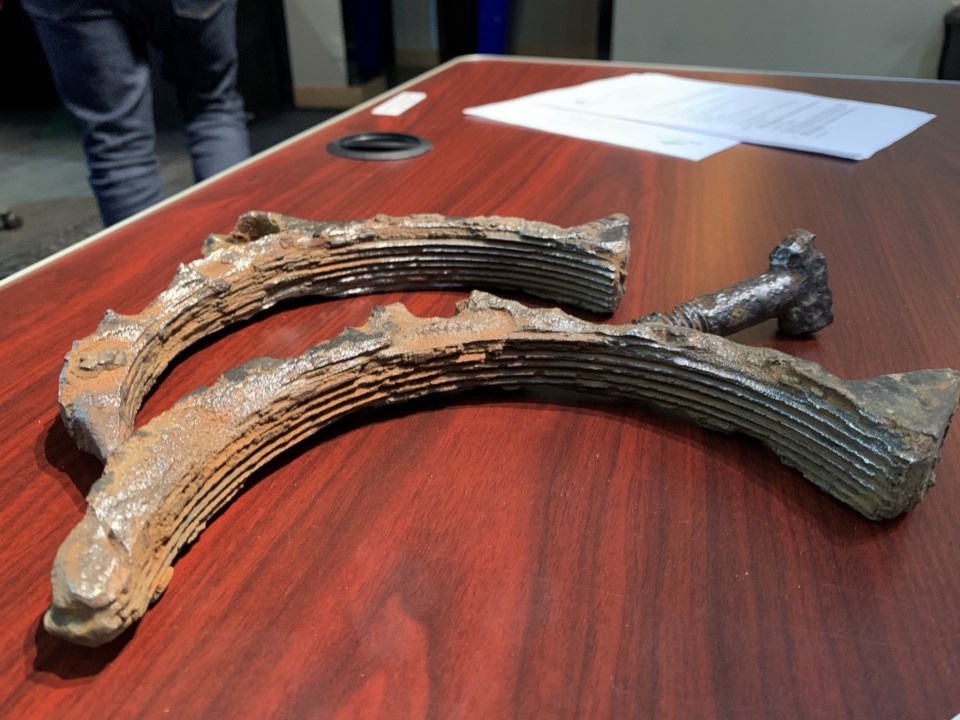Whistler has awarded a multi-million dollar contract for the construction of Phase 2 of the South Whistler Water Supply (SWWS) upgrade project.
The overall project is intended to enhance the capacity of the Cheakamus water system, and allow it to pump water north towards Creekside and Whistler Village. According to staff documents presented at the Dec. 5 council meeting, it is vital to the Resort Municipality of Whistler’s (RMOW) Official Community Plan for future growth in the area.
Phase 2 of the project focuses on the construction of a pump station and treatment facility to tie in to works completed in Phase 1 during 2023. In that phase, more than 500 metres of new water mains was installed from Lynham Road to the Cheakamus Crossing water system on the other side of Highway 99.
According to the RMOW’s manager of capital projects, Chelsey Roberts, this phase of the project has many benefits.
“Firstly, it enhances the system’s capacity, allowing for efficient water distribution to the north when needed,” she said at the council meeting. “Additionally, it introduces redundancies to the Cheakamus and Function Junction water systems, ensuring reliable operation. Furthermore, the project tackles corrosion management in the drinking water system, aligning with Health Canada drinking water guidelines. It also involves upgrading assets and contributing to improving operational functionality.”
On the corrosion issue, the overall project is intended to raise the pH level of the water, and reduce corrosion in municipal and private water systems with a pH control treatment.
The phase is expected to be completed in the second quarter of 2025, with staff noting there will be longer lead times due to expected procurement delays.
Maple Ridge-based company Drake Excavating was awarded the contract for the project, with its tender submission coming in at $6,138,500—29-per-cent less than initial project estimates, and below the two other compliant tender submission prices.
Drake “submitted the most competitively priced bid,” reads the staff report, “presenting a significant cost advantage.”
“This cost-effectiveness, coupled with their compliance with the project requirements, positions Drake as the preferred contractor for the SWWS Upgrade Project Phase II.”
Drake also carried out Phase 1 works on the SWWS project.
The company under-bid Whistler-based Coastal Mountain Excavations (which submitted a $7.8-million tender), and Canadian company NAC Constructors ($7.7 million).
The RMOW budgeted $8,650,000 for this phase of the project, with the initial cost estimate coming in at $8,617,000.
The entire SWWS project has $11.16 million budgeted over three years, with $4.49 million in funding covered by grants secured by the municipality, which will come from the federal and provincial governments in 2023 and 2024. The remainder will come from the RMOW’s water capital reserve.
The only question from council came from Councillor Arthur De Jong, who queried the corrosion aspect of the works and the required pH of drinking water.
According to the RMOW’s general manager of infrastructure services, James Hallisey, the required pH range of drinking water is between 7 and 10.5, with Whistler’s drinking water being mildly acidic, causing the corrosion in water infrastructure.
“Most of the well water in Whistler has that issue, we’re falling in that 6.5 to 7 range, so this was the first system where we’re going to make this change to adjust it,” he said.
“We’re going to easily ensure it’s above 7 … we probably won’t get close to 10, but we won’t need to.”
Previous Health Canada recommendations required pH in drinking water systems to be between 6.5 and 8.5—meaning the RMOW systems were previously within guidance.
Council voted unanimously to award the contract to Drake Excavating at the Dec. 5 council meeting, with procurement set to begin immediately, construction in 2024, and commissioning and completion in the first half of 2025.




